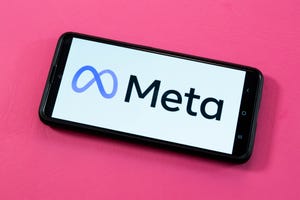
Meta Will Let You Use AI Chatbots With Personalities, Report Says - CNET
Meta, the parent company of Facebook, Instagram and now Threads, plans to launch AI chatbots with particular personalities that can be used for more elaborate interactions with the company’s social networks, the Financial Times reported Tuesday.
The company could announce the chatbots, called personas, as soon as September, the report said. Meta will offer the chatbots to improve search and recommendations, like travel advice in the style of a surfer, and to give people an online personality that’s fun to “play with,” the report said. One such AI persona the company tried building is a digital incarnation of President Abraham Lincoln.
If successful, the AI chatbots could help keep the 4 billion people who use Meta services each month more engaged, addressing a major Meta challenge as growth becomes harder and rivals such as TikTok draw people’s attention elsewhere. Meta consolidated its artificial intelligence efforts earlier this year to “turbocharge” its work and build better “creative and expressive tools,” Chief Executive Mark Zuckerberg said at the time.
AI chatbots also could provide the company with a new wealth of personal information useful for targeting advertisements, Meta’s main revenue source. Search engines already craft ads based on the information you type into them, but AI chatbots could capture a new dimension of people’s interests and attributes for more detailed profiling. Privacy is one of Meta’s biggest challenges, and regulators already have begun eyeing AI warily.
Meta declined to comment.
AI chatbots, exemplified by OpenAI’s ChatGPT, have become vastly more useful and engaging. Their use of large language models trained on vast swaths of the internet gives them a vastly greater ability to understand human text and offer helpful responses to our questions and conversation.
Many ChatGPT rivals are available already, including Anthropic’s Claude 2, Microsoft’s Bing and Google’s Bard. Such tools are often available for use by other software and services, letting direct Meta rivals like Snap offer chatbots of their own. So getting ahead simply by offering an AI chatbot doesn’t guarantee success.
Facebook has billions of users, though, and deep AI expertise. In July it released its own Llama 2 large language model.
Chatbots are not without risks. They’re prone to fabricating plausible but bogus responses, a phenomenon called hallucination, and can have a hard time with facts. LLM creators often hire “red teams” to try discover and thwart potential abuses, like people using LLMs for sexual or violent purposes. But the area of AI security and abuse is new, and researchers are finding new ways to evade LLM restrictions as they dig into the area.

